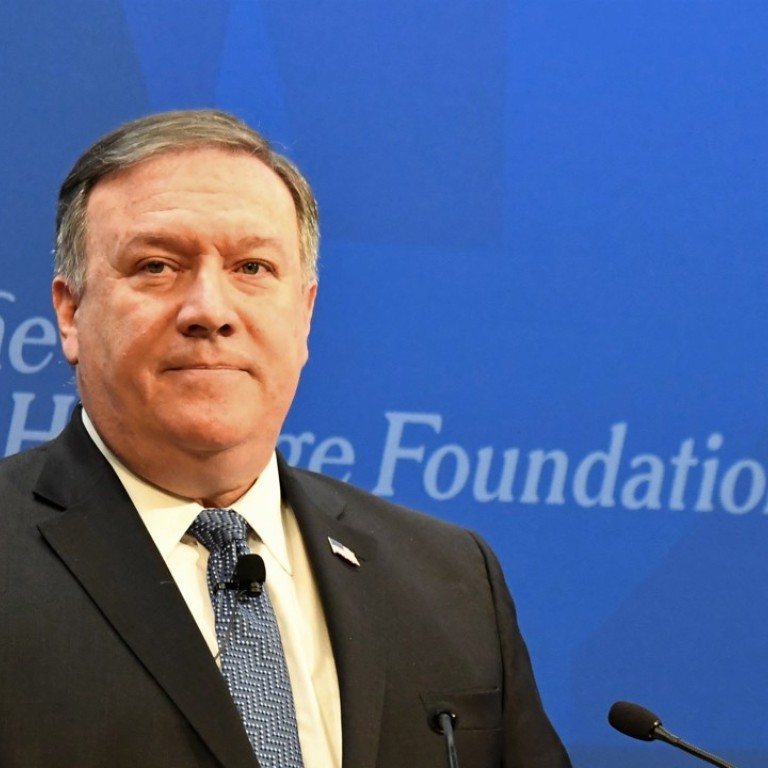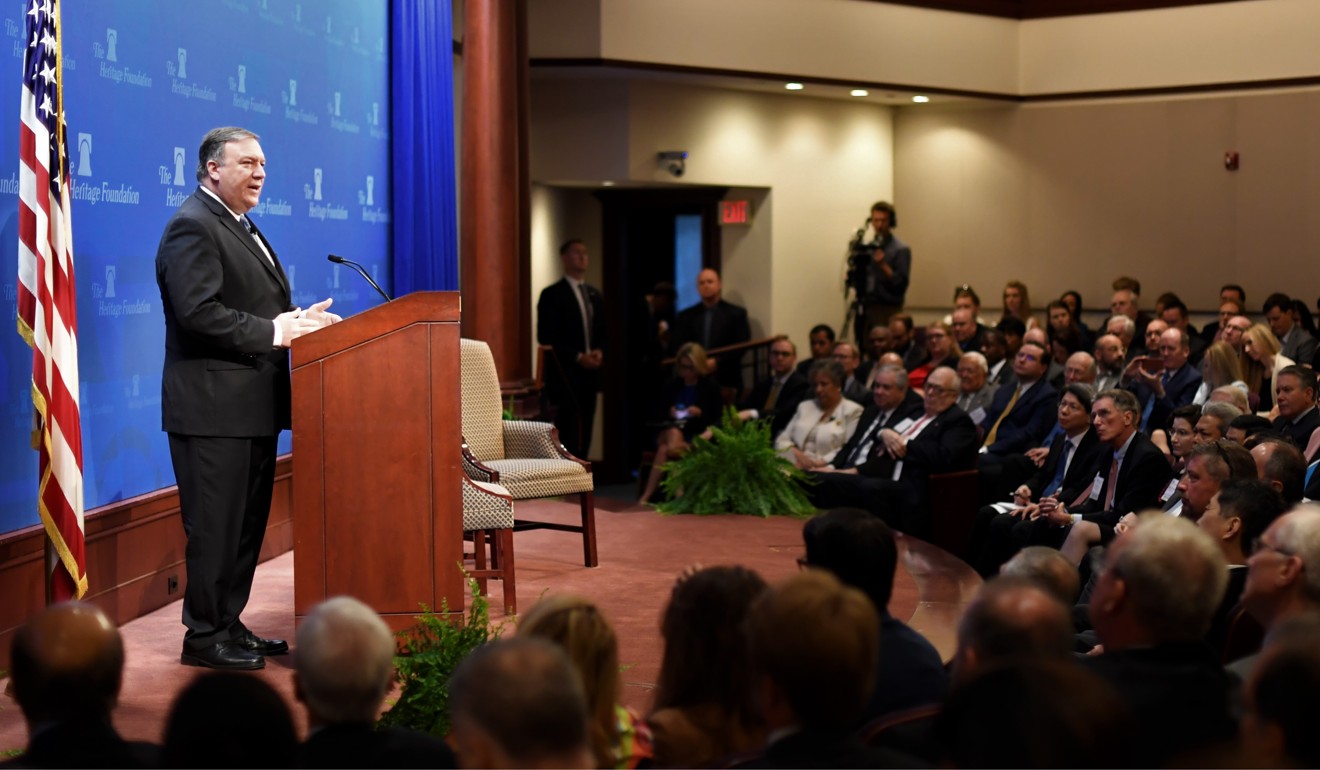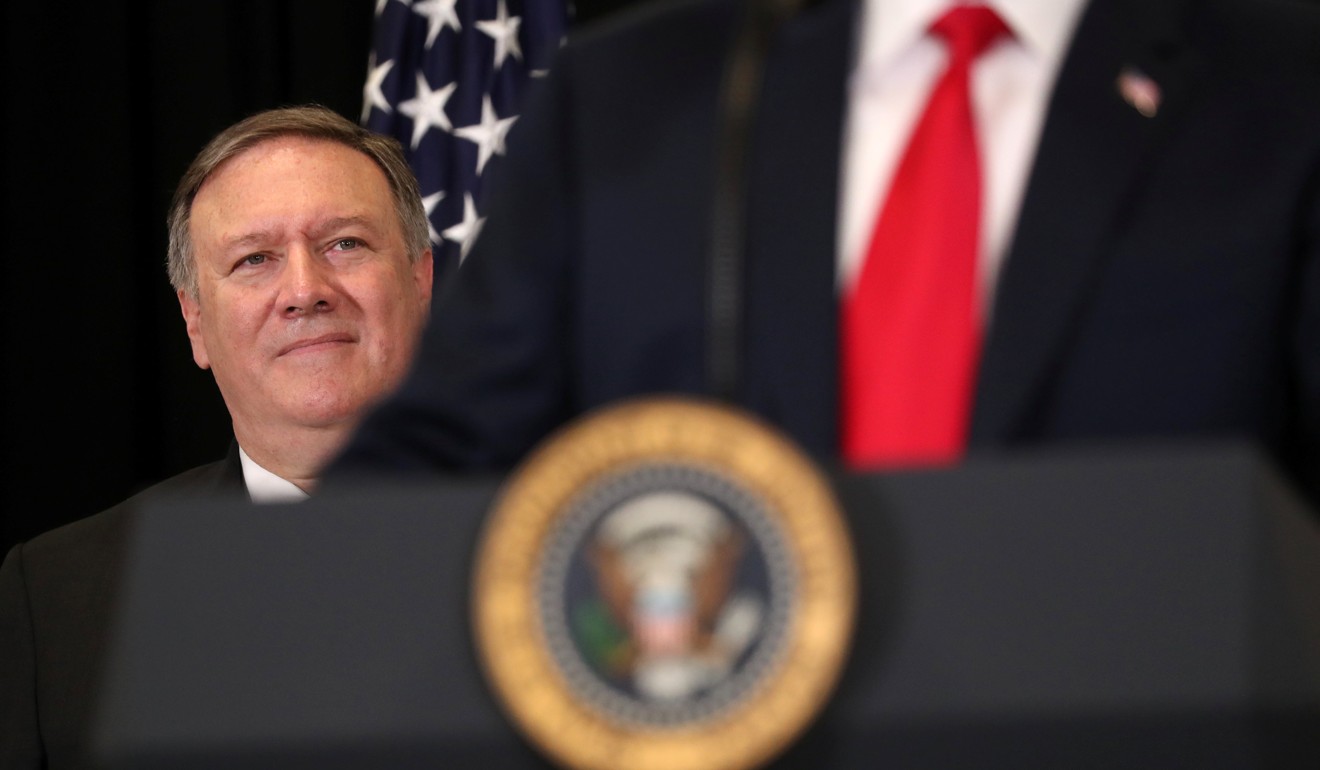
US Secretary of State Pompeo tells of ‘Iranian assassination operations’ in Europe. No one knows what he’s talking about
In his first major speech as the top US diplomat, Pompeo singled out Iran’s Quds Force, but there have been no recent killings in Europe officially attributed to Tehran
Mike Pompeo’s claim that the Iran’s Revolutionary Guard is carrying out “assassination operations in the heart of Europe” has bewildered security experts and Iranian exiles, who say they are not aware of any evidence for the allegation.
The new US Secretary of State referred to the alleged assassinations in his first major speech on Monday, but devoted just a single line to it amid a litany of criticisms of Iranian behaviour, giving no further details.

Asked about Pompeo’s statement, the state department spokeswoman, Heather Nauert, said: “He has information and access to information that I do not. I am not able to comment on that in particular but I can tell the secretary has assured me that there is a basis for that point in his speech and he stands firmly behind that.”
Today, the Iranian Quds Force conducts covert assassination operations in the heart of Europe
US diplomats specialising in Iran were taken by surprise by Pompeo’s allegations.
There have been no recent killings in Europe officially attributed to the Iranian state. Iran’s last prime minister under the Shah, Shapour Bakhtiar, was assassinated in France in 1991, and four Iranian Kurdish dissidents were gunned down in a Greek restaurant called Mykonos in Berlin the following year.
The court in the Mykonos case issued an international arrest warrant in 1997 for Iran’s then intelligence minister, Hojjat al-Islam Ali Fallahian, but Tehran denied involvement.
The 2012 bombing of a bus carrying Israeli tourists in Burgas, Bulgaria, was blamed by the Bulgarian government on the Lebanese militia, Hezbollah, widely viewed as an Iranian client force.
Pompeo threatens Iran with ‘strongest sanctions ever’ if it doesn’t comply with revised nuclear deal
Pompeo’s remarks, however, appeared to refer to current rather than past events and singled out the Quds force.
The most recent killing of an Iranian dissident took place in The Hague in November last year, when a gunman shot Ahmad Mola Nissi, the leader of an Iranian Arab separatist group in the oil-rich Khuzistan province.
The armed wing of Nissi’s movement had claimed responsibility for several attacks in Iran including the deaths of two IRGC guardsmen in January 2017.
Nissi’s daughter said in an interview last year that her father’s death was reminiscent of Iranian state killings in 1990s.

However, the Dutch investigation into the killing has not publicly blamed the IRGC. If Pompeo was referring to the Nissi murder, he was disclosing formerly classified information.
Iraj Mesdaghi, a Sweden-based Iranian political activist who spent a decade in jail in Iran from 1981 to 1991, questioned Pompeo’s claim.
“It’s unlikely to be true,” said Mesdaghi, a researcher on human rights abuses in Iran who has closely monitored IRGC activities in Europe.
“There is no evidence to back the claim that currently they are carrying out such operations in Europe.”
Iran’s top envoy to China calls on Beijing to help safeguard nuclear deal
Mesdaghi said the IRGC or Quds Force have not been officially blamed for any assassinations in Europe since the Mykonos trial.
Mesdaghi said Iran is suspected to have carried out at least a couple more such attacks since Mykonos, such as the killing near Paris of the former cabinet member Reza Mazlouman. But he said such assassinations appeared to have stopped after the end of Mykonos trial in 1997.
“Europe made it clear after Mykonos that such assassinations are a red line for the continent,” he said.
Mesdaghi said no links have been established so far to tie Iran to Nissi’s death. “It would be very unusual for Iran to have carried out his killing given the relationship they have with Europe now and the fact that Nissi was not influential, nor important enough,” he said.
Shashank Joshi, a senior research fellow at the Royal United Services Institute in London said: “Iran conducted a wave of assassinations across Europe in the 1990s, and the Iran-backed militant group Hezbollah is widely thought to have been responsible for the Burgas attack in 2012 as retaliation for Israeli targeting of Iranian nuclear scientists.”
But, as for the Nissi killing, Joshi said: “There is no public evidence to weigh these claims and European officials have been silent.”

